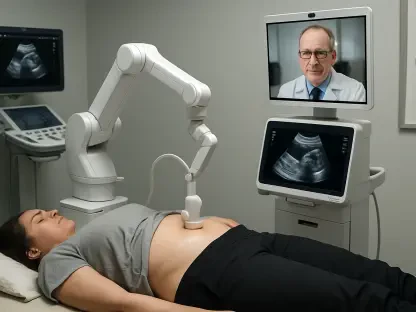Imagine a patient preparing for a major surgery, such as one for colorectal or pancreatic cancer, only to face unexpected delays in recovery due to an often-overlooked factor: mental health. Research from leading medical institutions has uncovered a striking connection between psychological well-being and physical healing, revealing that untreated depression can significantly hinder post-surgical outcomes. This emerging evidence suggests that addressing mental health before a procedure isn’t just a supplementary concern but a critical component of effective care. Patients with untreated depression often experience longer hospital stays, higher readmission rates, and increased complications, all of which burden both individuals and healthcare systems. However, when depression is managed prior to surgery, the results are transformative, offering shorter recovery times and reduced costs. This compelling link between mind and body underscores a growing need to integrate mental health support into surgical preparation, challenging traditional approaches to patient care.
Unveiling the Link Between Depression and Surgical Recovery
The impact of mental health on physical recovery has become a focal point in recent medical studies, particularly for patients undergoing major surgeries. A comprehensive analysis of over 32,000 individuals revealed that those diagnosed with depression, either before or after a cancer diagnosis, faced substantial challenges in their healing process compared to their counterparts without such a condition. Specifically, these patients endured slower recovery periods, extended time in hospitals, and a greater likelihood of being readmitted due to complications. The data paints a stark picture of how psychological struggles can manifest as tangible barriers to physical health, often leading to a cascade of setbacks that affect overall treatment success. Beyond the personal toll, these delays contribute to a broader strain on medical resources, highlighting the urgency of recognizing and addressing mental health as a fundamental aspect of surgical readiness.
Further exploration of this research uncovers a powerful solution: treating depression before surgery can dramatically alter outcomes. Among the patients studied, those who received antidepressant medication demonstrated notably better results, including fewer post-operative complications and a reduced risk of mortality within 90 days after their procedure. Shorter hospital stays were also a significant benefit, allowing individuals to return to their daily lives more swiftly. This finding emphasizes the potential of pharmacological intervention as a key strategy in mitigating the adverse effects of depression on recovery. While the study primarily focused on medication as a measure of treatment, it opens the door to considering how other forms of support might similarly enhance results. The evidence is clear that proactive mental health care is not merely beneficial but essential for optimizing surgical success and ensuring patients are equipped to heal both mentally and physically.
Economic and Systemic Implications of Mental Health Intervention
The financial ramifications of neglecting mental health in surgical care are substantial and cannot be ignored. Patients without depression typically incur average medical costs around $17,550, while those with treated depression see expenses roughly seven percent higher due to additional care needs. However, the cost burden escalates significantly for individuals with untreated depression, whose expenses climb approximately ten percent above the baseline. This disparity underscores the economic weight of unaddressed psychological issues, which not only affect patient well-being but also place a considerable strain on healthcare budgets. By investing in mental health treatment prior to surgery, hospitals and systems stand to gain significant savings, redirecting resources to other critical areas. This financial perspective reinforces the argument for integrating mental health screenings and interventions as a standard part of pre-surgical protocols.
Beyond the numbers, there is a growing recognition within the healthcare community of the need for systemic change to prioritize mental health. The heightened awareness of social stressors—such as unemployment or food insecurity—since the global health crisis has illuminated the deep connection between external pressures and health outcomes. Experts advocate for routine depression screenings before surgical procedures as a proactive measure to identify at-risk patients and provide necessary support. Such initiatives ensure that individuals are better prepared to follow medical advice and engage in self-care, which are crucial for successful recovery. Implementing these screenings could mark a pivotal shift in how patient care is approached, fostering a more holistic model that acknowledges the interplay of mental and physical health. This systemic push toward integration signals a broader commitment to enhancing patient outcomes through comprehensive care strategies.
Paving the Way for Holistic Surgical Care
Reflecting on the strides made, it becomes evident that addressing mental health before surgery has reshaped recovery trajectories for countless patients. The evidence gathered points to an undeniable truth: untreated depression once posed a formidable barrier, extending hospital stays and escalating costs. Yet, when interventions like antidepressants were employed, the landscape of recovery transformed, with reduced complications and quicker returns to normalcy. Hospitals that adopted early mental health screenings saw a marked improvement in patient resilience and adherence to post-operative care. These efforts not only alleviated individual suffering but also lightened the economic load on healthcare systems. Looking ahead, the focus should shift to expanding these practices, ensuring that psychological support becomes a cornerstone of surgical preparation. Exploring additional therapies and refining screening processes could further enhance outcomes, setting a new standard for patient care that truly bridges the gap between mind and body.









